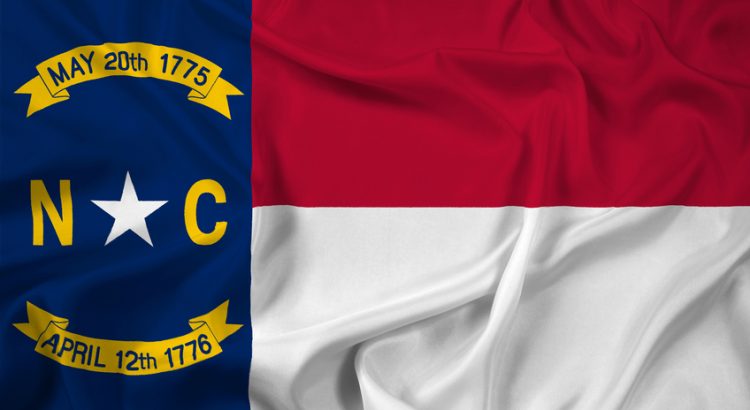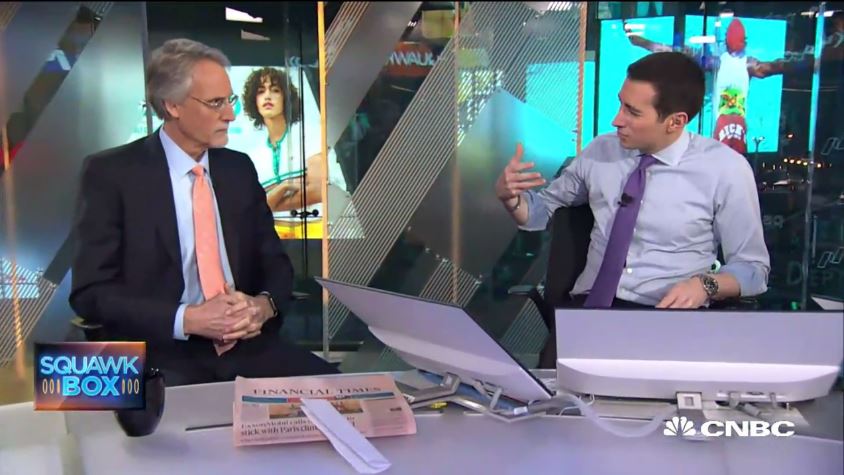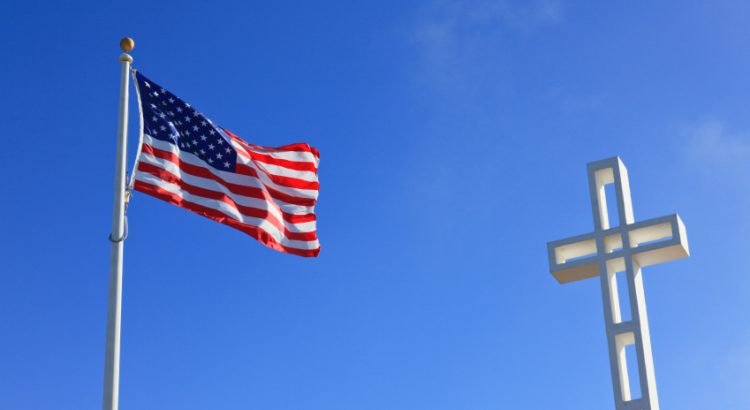“Christians in America have played this game for so long now and with so many half-baked strategies that they can no longer differentiate between America and God, something Scripture calls idolatry. Once Christians zero in on the state as the locus of political activity, they become blind to those myriad other ways the church might politically act in the broad horizon of democratic possibility,” writes Stanley Hauerwas, professor emeritus at Duke Divinity School.
Read More at the Australian Broadcasting Corp.Category: Politics-Public Policy

NC ‘Compromise’ on HB2 and LGBT Discrimination
“Many activists working on the ground in North Carolina for HB2’s repeal see the compromise as a disgrace,” says Gabriel Rosenberg, a professor of gender, sexuality and feminist studies. “Gov. Cooper and the state Republican Party are horse-trading with the basic human rights of their constituents. … The compromise takes basic rights from LGBTQ citizens and gives them access to accommodations that never should have been denied in the first place. So it’s a give and take just like when a bully steals your wallet but lets you keep bus fare home.”

North Carolina’s HB142: Repeal? Compromise? What Does it all Mean?

Is Repeal of Bathroom Bill a Good Deal for Anyone?
The NCAA’s deadline was “the symbolic hammer that finally worked,” says public policy professor Pope “Mac” McCorkle, a former lawyer who has worked as a policy consultant for North Carolina’s representatives. He says the deal worked out Thursday looks more like “a plea bargain. “The NCAA isn’t liberal or conservative (by nature) so it became kind of the default judge in this case.”
Read More in The International Business Times
Bathroom Law Repeal Leaves Few Pleased in North Carolina
Public policy professor Pope “Mac” McCorkle called the deal an “awkward compromise.” He says it would ultimately be judged by how many of the sports events, entertainers and businesses who had turned on the state would eventually change their minds. Law professor Jane Wettach says that beyond schools, few institutions had ever policed people’s bathroom choices. “Which is what made the law sort of symbolic,” she says, referring to House Bill 2.
Read More in The New York Times
North Carolina’s Bathroom Bill Repeal Won’t Bring the NCAA Back
“The state could lose more than $3.76 billion over the next 12 years due to boycotts and lost business opportunities stemming from the bill, which takes aim at LGBT anti-discrimination policies, according to an Associated Press analysis. … It will take strong action to convince national and global organizations that have cut ties with the state to return …,” writes Dorie Clark, an adjunct professor at The Fuqua School of Business and a former presidential campaign spokeswoman for Howard Dean.
Read More in Fortune
NC’s Love of College Sports Spurred Move to Repeal Bathroom Law
“I think the N.C.A.A’s view had become a barometer for people judging the economic development impact,” says Pope “Mac” McCorkle, a former state Democratic consultant who is now a professor of public policy at Duke. “It locked in people’s view that this is a mess, and the way we would know the mess had cleared up is the N.C.A.A.”
Read More in The New York Times
Is Fight to Repeal/Replace Affordable Care Act Dead?
Dr. Kevin Schulman says President Obama is often blamed for skyrocketing health care costs even though it long preceded the Affordable Care Act and affects everyone, not just those who have insurance through the law. Yet Schulman doesn’t see any serious attempts to address that core issue among the health care policy proposals floating around Washington. “It doesn’t seem like a lot of people on the Hill have agreement about what the problems are,” he says. “Coming to a consensus on a solution is even more challenging. I’m not optimistic that they can get there.”
Read More on PolitiFact
Civilians In Mosul Remain Trapped As ISIS Digs In
Law professor Charlie Dunlap, a retired major general in the U.S. Air Force, talks about U.S. military operations and urban warfare in Mosul, where some 400,000 civilians remain trapped. More than 100 civilians were reportedly killed in a recent U.S. air strike, and Dunlap and military officials have noted that ISIS is using civilians as human shields. “In the case of Mosul the enemy has had 2 1/2 years to prepare for this assault” and they have burrowed in, Dunlap says. He added that urban combat is always very dangerous for civilians. “Every civilian casualty is a tragedy and the military has to work very hard to avoid them.”
Listen on NPR’s “Morning Edition”

Fuqua Study Finds Alumni Power in Statehouses
A new study from the Fuqua School of Business found that legislatures where more lawmakers have ties to in-state colleges and universities provide more funding to those public institutions. “While we can’t show that adding another University of North Carolina graduate to the North Carolina General Assembly is going to result in higher funding, it does make you question whether universities should be more actively encouraging their graduates to run for public office and advocate for public education if they believe that will benefit their lives,” says Aaron Chatterji, a report author and associate professor of business and public policy.
Read More at Inside Higher Ed
Business and Political Worlds are Colliding
Bill Boulding, dean of The Fuqua School of Business, talks about how business leaders are reacting to political activism. Some of the recent examples include the NBA cancelling its all-star game in North Carolina because of HB2, the state’s so-called “bathroom bill.” Adds Boulding: “The thing that I think is critical that I think the business community brings that’s lost in the political world, is the business community knows how to bring people together with common purpose and we seem to have lost that on the political side of things where there’s so much divisiveness.”
Watch on CNBC’s “Squak Box”
Why the Foreign Policy Sky is Not Falling
“In my view, it’s vitally important for national security law professionals to separate whatever personal dislike they may harbor for the president from their assessments of what the U.S. government writ large is doing. Moral outrage has its value, but it can also be counter-productive,” writes law professor Charlie Dunlap, a former deputy judge advocate general of the U.S. Air Force. “Likewise, we need to recognize that reflexively and indiscriminately opposing every initiative of the Trump administration creates the very real danger of throwing out the proverbial baby with the bath water.”
Read More in Just Security

